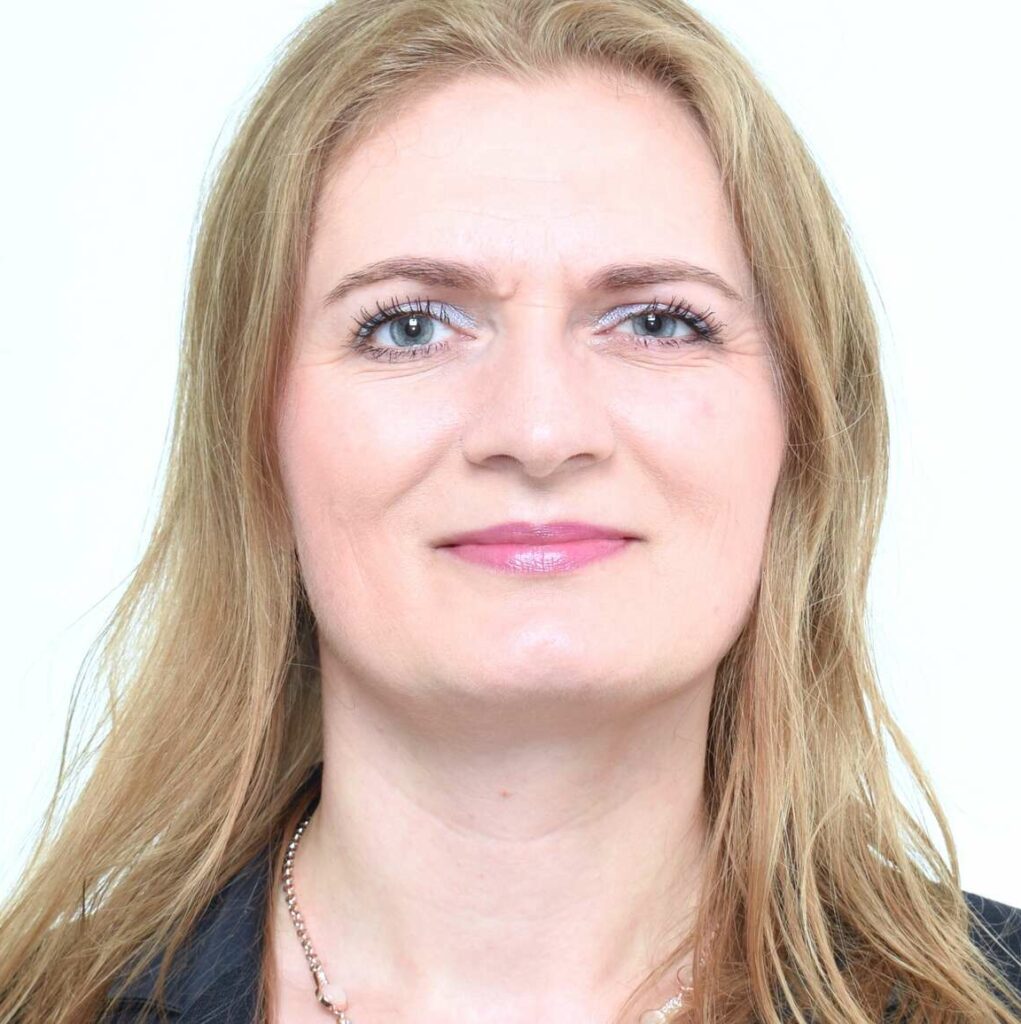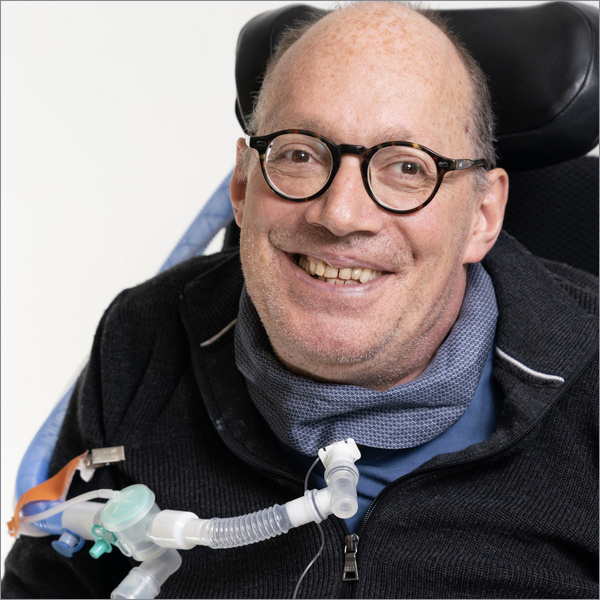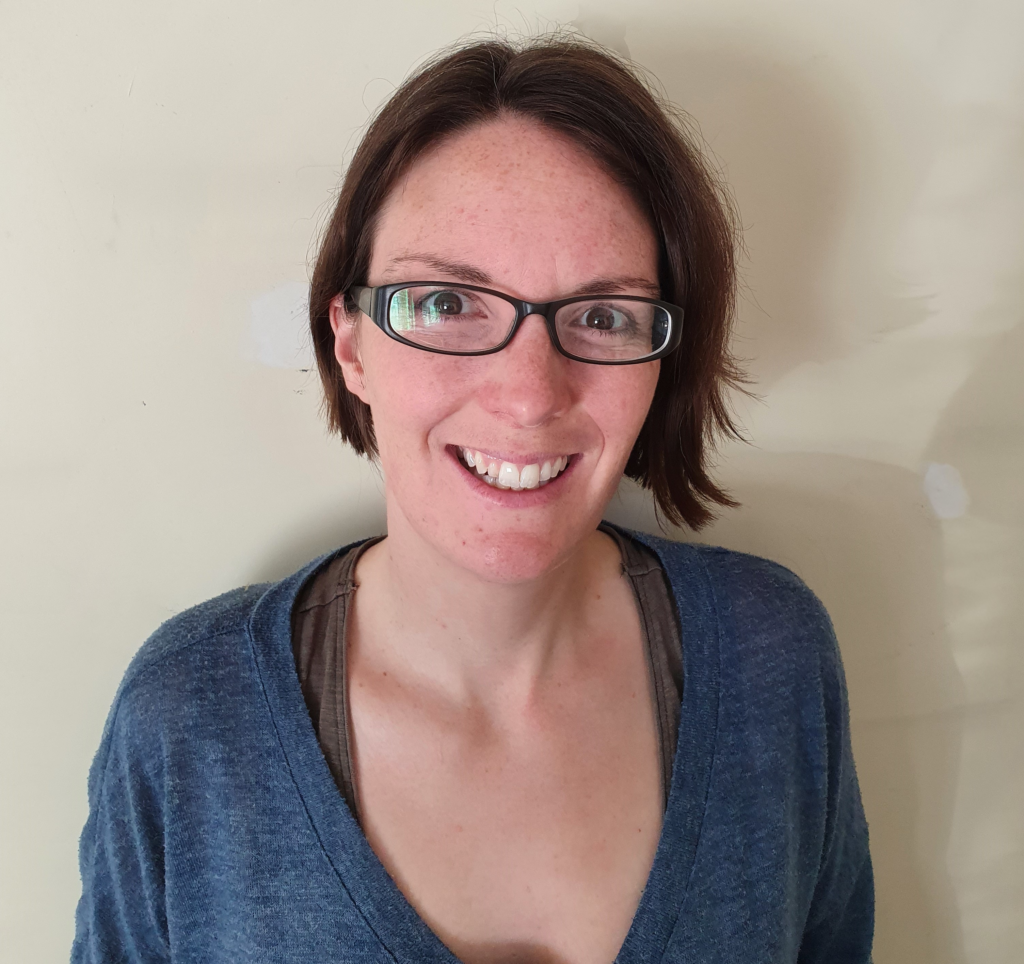
Before you order a book, it’s always good to look at some reviews. We hope these two will encourage you to read it!
Claudia Böckle
Music Educator, Theologian, and Proofreader

English:
John Wyatt is Emeritus Professor of Ethics and Perinatology, University College London. For 25 years, he worked as a physician and researcher to ensure a well-functioning start to human life, now he concerns himself in this almost 180-page book (English version: only 150-page book) with the ethical questions at the end of life.
With concrete examples Wyatt shows how a variety of European countries deals with Euthanasia and Physician Assisted Suicide. The book describes what the medications aim to achieve when ending someone’s life, in what kind of conflict of conscience physicians can find themselves in when dealing with these requests, and how difficult it is to find good criteria to justify Euthanasia. He looks at the situations in the USA and Canada, before he returns to the UK, where the physician Cicely Saunders has spearheaded the modern Hospice care movement and through good palliative care has introduced an honouring approach to the end of life. It is not only about the bodily suffering one hopes to be freed from, but also the psychological pain, relational pain, and spiritual or existential suffering. To make sure these aspects are not forgotten, we need the voice of Christians. Wyatt offers some helpful tools for this, with background information about the legal situations, and urges for much needed statistics, which thus far have not been collected. For instance: how many medications with the purpose to end life are distributed? How many people take them? Who experiences pressure from society or family? How do physicians deal with the pressure? How many misdiagnoses occur with terminal diseases?
German:
John Wyatt ist emeritierter Professor für Neonatale Pädiatrie, Ethik und Perinatologie am University College London. 25 Jahre lang hat er sich als Arzt und Forscher um einen funktionierenden Start ins menschliche Leben gekümmert, nun befasst er sich in dieser knapp 180-seitigen Broschüre mit den ethischen Fragen am Lebensende.
Wyatt beschreibt konkrete Fallbeispiele und zeigt, wie in unterschiedlichen europäischen Ländern mit Euthanasie und assistiertem Suizid umgegangen wird. Er beschreibt medizinisch, was tödliche Medikamente im Körper auslösen, in welchem Gewissenskonflikt sich Ärzte befinden und wie schwierig es ist, tragfähige Kriterien aufzustellen, die Euthanasie rechtfertigen sollen. Er blickt auf die USA und Kanada und kehrt zurück nach Großbritannien, wo die Ärztin Cicely Saunders mit der modernen Hospizbewegung und Palliativversorgung ein menschenwürdiges Modell für das begleitete Lebensende eingeführt hat. Es geht nicht nur um das körperliche Leiden, von dem man sich Erlösung wünscht, sondern auch um psychischen Schmerz, Beziehungsschmerz und spirituellen oder existentiellen Schmerz. Um diese Aspekte in der Diskussion nicht unberücksichtigt zu lassen, braucht es die Stimme der Christen. Wyatt bietet dafür ein gutes Rüstzeug mit Hintergrundinfos zur aktuellen rechtlichen Lage und hat sich auch um statistische Basisfakten bemüht, die aber noch zu wenig erhoben werden, wie z.B.: Wie viele tödliche Medikamente werden ausgegeben? Wie viele nehmen sie tatsächlich ein? Wer erfährt Druck von Gesellschaft oder Familie? Wie gehen Ärzte mit dem Druck um? Wie viele Fehldiagnosen gibt es bei tödlichen Krankheiten?
Dr. Franz-Joseph Huainigg
Former Member of the Austrian Parliament, Author, Member of “Living selfdetermined”-Initiative („Selbstbestimmt leben“ – Bewegung)

English:
Dying Without Dignity? describes the societal shift in values and in dealings with human dignity in Europe. It really is a book one must read to understand the past, to be able to compare the developments in several countries, and to demand political consideration of human dignity. The unimaginable acts of horror at Schloss Hartheim are recounted, as is the first assisted suicide of a wheelchair user from Salzburg, following the passing of the law that legalised it. Whoever looks at the developments in various European countries, in which assisted suicide was legalised as last resort or exception but quickly became widely applied, will recognise the wide societal call for autonomy. This call for autonomy of the individual becomes a pressure point for people with disabilities, who increasingly need to justify the mere fact of being alive.
“Death without Dignity – Euthanasia and Assisted Suicide in Europe” – a book that raises many questions about how we politics and society want to shape our future.
German:
Das Buch „Sterben ohne Würde?“, stellt die gesellschaftliche Verschiebung der Werte und des Umgangs mit der Menschenwürde am Lebensende in Europa dar. Ein Buch, das man lesen muss, um die Vergangenheit zu verstehen, Entwicklungen in anderen Ländern zu vergleichen und politische Achtsamkeit der Menschenwürde einzufordern! Die unvorstellbaren Gräueltaten auf Schloss Hartheim werden ebenso dargestellt, wie auch der erste assistierte Suizid einer Rollstuhlfahrerin aus Salzburg nach Beschluss des „Sterbeverfügungsgesetzes“. Wer die Entwicklungen in den verschiedenen europäischen Ländern, wo assistierter Suizid als Ausnahmefall eingeführt worden ist, aber sich dann zum Regelfall entwickelt hat, betrachtet, erkennt die gesellschaftliche Falle des Rufs nach Autonomie. Die Autonomie des Einzelnen wird zum Druck auf Menschen mit Behinderungen, die sich zunehmend dafür rechtfertigen müssen, überhaupt am Leben zu sein.
„Sterben ohne Würde – Euthanasie und assistierter Suizid in Europa“ – ein Buch, das viele Fragen aufwirft wie wir als Politik und Gesellschaft unsere Zukunft gestalten wollen.
Active Judge in Austria

English:
The book Death Without Dignity? Euthanasia and Assisted Suicide in Europe by Prof Dr John Wyatt is a captivating and informative read. It offers a broad and detailed analysis of, and is a great introduction to the complex debates around, euthanasia and assisted suicide. Both are very controversial topics, which involve both moral and legal questions. The author, a renowned neonatal expert, discusses these broad legal, ethical, moral, and medical implications of euthanasia and provides a deep insight into the history and the methods used. The book is well structured and presents the information in a clear and easily accessible manner. The author engages the controversies and discussions, associated with euthanasia, and offers a distinct and balanced view on the topic. Important to point out is also the fact that the book both discusses the various views and arguments of advocates and opponents to the praxis. The study abounds in case studies and examples, which help clarify the numerous facets of euthanasia.
The topic of euthanasia throws up a lot of difficult questions, particularly from a legal perspective. For practicing legal experts, the variously distinctive and grounded perspectives on the legal parameters of euthanasia and assisted suicide are very helpful and interesting. The legal questions surrounding the praxis are exhaustively presented. Wyatt discusses the laws and verdicts in many countries and provides, from this legal perspective, a profound insight into one of the most important legal aspects of euthanasia – the autonomy of the patient, the medical responsibility as well as the possible prosecutorial consequences for physicians and other involved persons. He identifies in a detailed manner, which thoroughgoing problems may occur in the physician-patient relationship in view of euthanasia and assisted suicide. He also describes the weaknesses and objections to the grounding of the laws by the governments in many European countries.
The book encourages the reader to engage this topic and these difficult questions holistically and broadly. It further shows and elucidates how important it is, in an ageing society, to have and secure a qualitatively excellent and adequately available system of palliative care. The author challenges us by suggesting that the Christian faith specifically has a rich and nuanced understanding of suffering and pain. “Suffering in another human being is a call to the rest of us to stand in community.”
Overall, this is an excellent work, which will be of great interest to both, experts in these fields as well as other interested parties. Wyatt has managed to present these complex themes and topics in an appealing and informative manner. It truly offers the reader a multitude of perspectives and insights into the questions of euthanasia and assisted suicide.
German:
Das Buch „Sterben ohne Würde? Euthanasie und assistierter Suizid in Europa” von Prof. John Wyatt ist eine fesselnde und informative Lektüre, die eine umfassende und detaillierte Analyse der unterschiedlichen Aspekte von Euthanasie bietet, und ist eine hervorragende Einführung in die komplexe Debatte rund um Sterbehilfe. Euthanasie ist ein sehr kontroverses Thema, das sowohl moralische als auch rechtliche Fragen aufwirft. Der Autor, ein renommierter Experte auf dem Gebiet der Neonatologie, geht auf die juristischen, ethischen, moralischen und medizinischen Implikationen von Euthanasie ein und bietet einen tiefen Einblick in die Geschichte und die verschiedenen Methoden dieser Praktik. Das Buch bietet einen umfassenden Überblick über die verschiedenen Formen der Sterbehilfe. Es ist gut strukturiert und präsentiert die Informationen auf eine klare und leicht verständliche Weise. Der Autor geht auf die Kontroversen und Diskussionen ein, die mit Euthanasie verbunden sind, und bietet eine differenzierte und ausgewogene Sichtweise auf das Thema. Besonders hervorzuheben ist, dass das Buch auch die Perspektiven von Befürwortern und Gegnern der Sterbehilfe beleuchtet und sich mit den unterschiedlichen Argumenten auseinandersetzt. Das Buch ist reich an Fallstudien und Beispielen, die die verschiedenen Aspekte von Euthanasie verdeutlichen.
Das Thema Euthanasie wirft viele schwierige Fragen auf, insbesondere aus juristischer Sicht. Für praktizierende Juristen ist die differenzierte und fundierte Perspektive auf die rechtlichen Rahmenbedingungen der Sterbehilfe sehr hilfreich und interessant. Die juristischen Fragen der Sterbehilfe werden umfassend dargestellt. John Wyatt diskutiert die geltenden Gesetze und Rechtsprechungen in verschiedenen Ländern und gibt aus juristischer Sicht tiefe Einblicke in einige der wichtigsten rechtlichen Aspekte von Euthanasie – der Patientenautonomie, der medizinischen Verantwortung sowie der möglichen strafrechtlichen Konsequenzen für Ärzte und andere beteiligte Personen. Er thematisiert detailliert, welche tiefgreifenden Probleme sich in der Arzt-Patient-Beziehung durch das Thema ergeben können. Er zeigt auch die Schwächen und Widersprüchlichkeiten in den Begründungen der Gesetzgeber in vielen europäischen Ländern auf.
Das Buch regt an, sich holistisch und umfassend mit diesem schwierigen und komplexen Thema zu beschäftigen und verdeutlicht, wie wichtig es für eine alternde Gesellschaft sein wird, eine qualitativ hochwertige und ausreichend zur Verfügung stehende palliative Versorgung sicherzustellen. Der Autor fordert uns heraus, dass gerade der christliche Glaube ein reichhaltigeres und nuancierteres Verständnis von Leid und Schmerz hat. „Das Leiden eines anderen Menschen ist ein Aufruf an den Rest von uns, in der Gemeinschaft zu stehen.”
„Sterben ohne Würde? Euthanasie und assistierter Suizid in Europa” ist ein ausgezeichnetes Werk, das sowohl für Experten als auch für Laien auf diesem Gebiet von großem Interesse sein wird. Der Autor hat es geschafft, ein komplexes Thema auf eine ansprechende und informative Weise zu präsentieren und bietet dem Leser eine Vielzahl von Perspektiven und Einsichten in das Thema.
Dr Sarah Foot
Palliative Physician, UK

English:
Death Without Dignity? is a comprehensive guide to euthanasia and assisted suicide and is an excellent resource for those working in policy, politics and healthcare. John writes with clarity and compassion on this difficult subject, giving the reader signposts to the chapters they will most benefit from reading.
This book helps the lay person to understand the arguments for euthanasia, and why they do not hold up for population level health. He also demonstrates clearly the challenges with legalising assisted suicide, and how various jurisdictions have failed to meet these. As a palliative physician I particularly enjoyed the chapter on palliative care, the alternative way of caring and loving someone at the end of their life. It clearly identifies that it is not simply a case of ‘euthanasia or suffer’.
For anyone interested, or anyone who must make policy decisions on assisted suicide and euthanasia, this book should be on their bookshelf. It’s easy to read and you can easily find relevant sections to the questions you have.
German:
Sterben ohne Würde? stellt eine umfassende Einführung in das Thema Euthanasie und assistierter Suizid dar und ist ein exzellentes Hilfsmittel für solche, die in der Politik und im Gesundheitswesen tätig sind. John widmet sich diesem schwierigen Thema mit Klarheit und Leidenschaft und gibt den Lesern Wegweiser zu jenen Kapiteln, von denen sie am meisten profitieren werden.
Dieses Buch hilft einem Laien, sowohl die Argumente für Euthanasie nachzuvollziehen als auch zu verstehen, warum man diese nicht auf ein gesamtes Gesundheitswesen anwenden kann. Wyatt zeigt ebenfalls deutlich auf, mit welchen Herausforderungen die Legalisierung des assistierten Suizids einhergeht und wie verschiedene Rechtssysteme darin versagt haben, diesen gerecht zu werden. Als Palliativärztin habe ich insbesondere das Kapitel genossen, welches sich der Palliativmedizin widmet und dem alternativen Weg, Menschen mit Liebe und Fürsorge am Ende ihres Lebens zu begleiten. Dieses verdeutlicht, dass es letztlich nicht eine Frage von “Euthanasie oder Leiden” sein muss.
Jede Person, die an dem vorliegenden Thema interessiert ist oder politische Entscheidungen bezüglich assistierten Suizids und Euthanasie treffen muss, sollte dieses Buch in die eigene Bibliothek aufnehmen. Es ist leicht zu lesen und man kann spezifisch die für sich relevanten Abschnitte vertiefen.
Photo Credits:
- Featured picture: Olga Kononenko | Unsplash
- Claudia Böckle: ERF
- Franz-Joseph Huainigg: Franz-Joseph Huainigg

